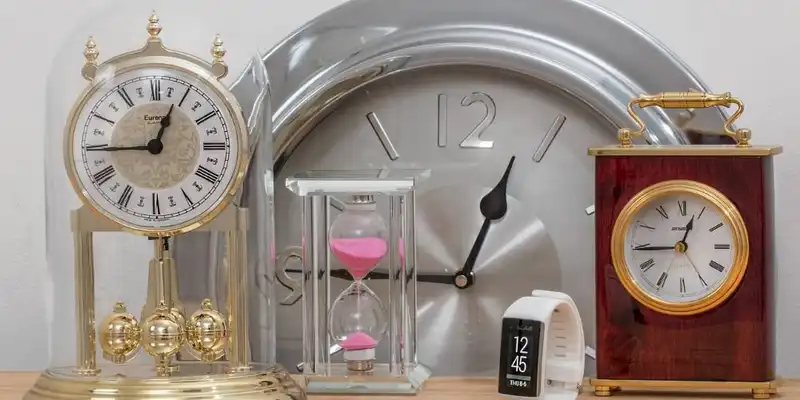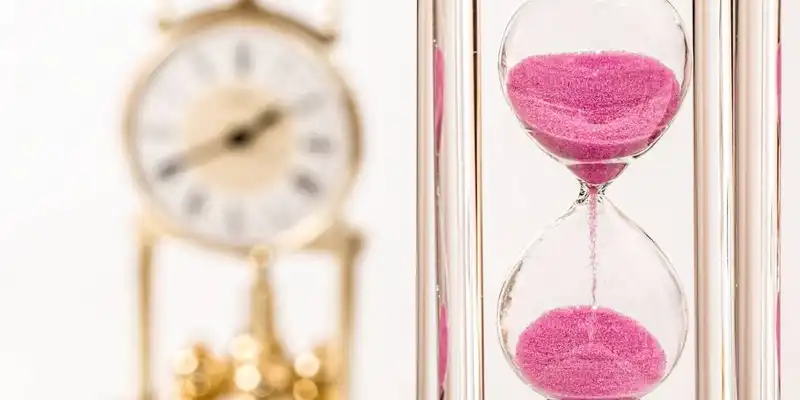How to Be More Efficient at Work
Introduction

Both large and small business professionals benefit from learning how to be more efficient at work every day. Workplace efficiency necessitates extensive and strategic planning as well as cooperation from everyone on your business's payroll.
The Importance of Efficiency
Workplace efficiency is crucial to optimizing both your personal productivity and your business's bottom line. An efficient and organized workforce will bump up both profits and output speed.
Workplace efficiency will increase both customer and worker satisfaction levels. Putting into effect specific strategies to enhance efficiency is a great task to undertake for all business professionals.
In order to boost your business's efficiency, you must first figure out how to be more efficient at work. Thankfully there are many tips, ranging from psychological analysis to accountability partners, that you may utilize to begin your efficiency enhancement.
How to Be Efficient

In an ideal world, businesses would be as efficient as possible effortlessly. There are a plethora of benefits to becoming more efficient, but it is no easy task to undertake. Below are some strategies to cultivate workplace efficiency-
1. Establish deadlines- Deadlines are an integral part of any efficiency system. Often times, the length of time spent on a specific task depends on how much time is allotted for the task's completion.
Assigning a time limit on a task will create motivation to complete the task before the deadline. As a result, work is performed more rapidly when a deadline is assigned and adhered to.
Deadlines can also guide you into the mental state that is referred to as flow. By setting clear, attainable, but challenging goals, you are forced to focus completely and practice control over your work process.
Flow occurs when concentration and immersion in a task are so potent that the task becomes central and as a result, efficiency is maximized. By establishing a realistic time limit on a task, you can produce just enough stress and pressure to trigger a flow state. By engaging in flow, your skills and time will both be idealized.
2. Split up tasks- When faced with a large project, it is natural to feel overwhelmed. By breaking up projects into tasks, and tasks into subtasks, projects will be much less intimidating.
A helpful tool for doing this is creating and maintaining a task list. Categorize your to-do list based on the urgency of each task, checking off tasks as you complete them. A task list will help keep you organized, accountable, and motivated by providing a sense of accomplishment and order.
Focus on one task at a time, instead of attempting to multitask or frantically jumping from one task to the next (with rarely a complete task as a result). Feeling accomplished multiple times throughout your day will leave you feeling energized and motivated.
Data shows that the more frequently workers experience progress, the more productive they are. Accomplishing a sense of progress, no matter how big or small that progress feels to the employee is the most central component in boosting workplace emotions, mind frame, and motivation. Maintaining the feeling of progress will boost your workforce's morale and productivity for the long term.
4. Understand both physical and mental aspects that affect performance- Psychologically and physically, there is a lot to be learned about workplace efficiency. For instance, there is a psychological phenomenon that asserts humans are more likely to work efficiently when other people all around to observe their work.
A physical component to consider is ultradian rhythms. Ultradian rhythms are the 120-minute biological intervals the human body experiences throughout the day. For the first 90 minutes of the interval, mental energy peaks. For the remaining 30 minutes, mental energy declines.
Make sure to take advantage of your ultradian rhythms, working in 90 minute sprints, followed by 30 minute rests. However, many may find it challenging to keep focused for 90 consecutive minutes.
Statistically, people can only stay focused for 20-25 minutesbefore their attention drifts elsewhere. To combat this, make sure you work with your attention span, instead of against it by utilizing the Pomodoro technique.
The Pomodoro technique constitutes working for 25 minutes and then resting for 5 minutes within your 90-minute sprints. Capitalizing on natural energy and scheduling short breaks to restore focus will sharpen your workplace efficiency.
5. Listen to white noise- Many people find listening to music while working to help them increase their mood and their productivity. However, research has found that listening to music with words signals your brain's language centers to pay more attention to lyrics than any task that requires reading, writing, or talking.
This is especially prevalent for new music. Our brains seek both the novelty and dopamine produced when listening to new music. This results in your attention being lured toward the music while drifting away from your current task.
Classical music, long thought to increase productivity and efficiency can actually hurt both if classical is a novel genre for you. If your workplace is too loud for you to concentrate, try turning on some white noise.
White noise bolsters concentration because it is so constant that your brain adjusts to it and tunes out auditory distractions that could otherwise hinder your current task's progression.
6. Get an accountability partner- An incredibly powerful accountability tool is an accountability partner. Human nature encourages us to want to please and impress others, especially people we respect like our work colleagues or superiors. Make sure to ask your accountability partner to check in with you about goals, remembering to check in with them on their goals as well.
7. Don't be a perfectionist- Perfection does not equate to productivity, there can be too much of a good thing. Make sure you keep focused on making sure an important task will get done instead of getting stuck on details.
Excessively reviewing work for errors not only halts task progression, but it also depletes your energy with very marginal improvement in the quality of your work. It is better to produce good quality work and make deadlines as opposed to turning in a perfect piece much too late.







